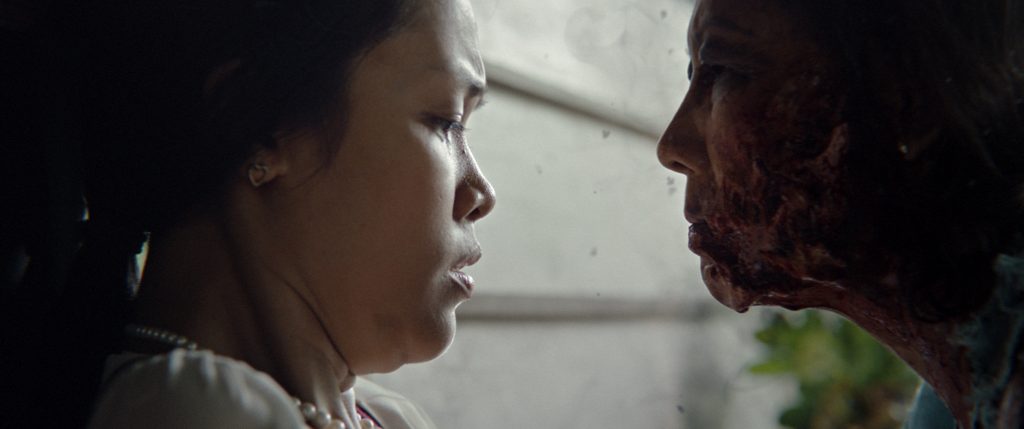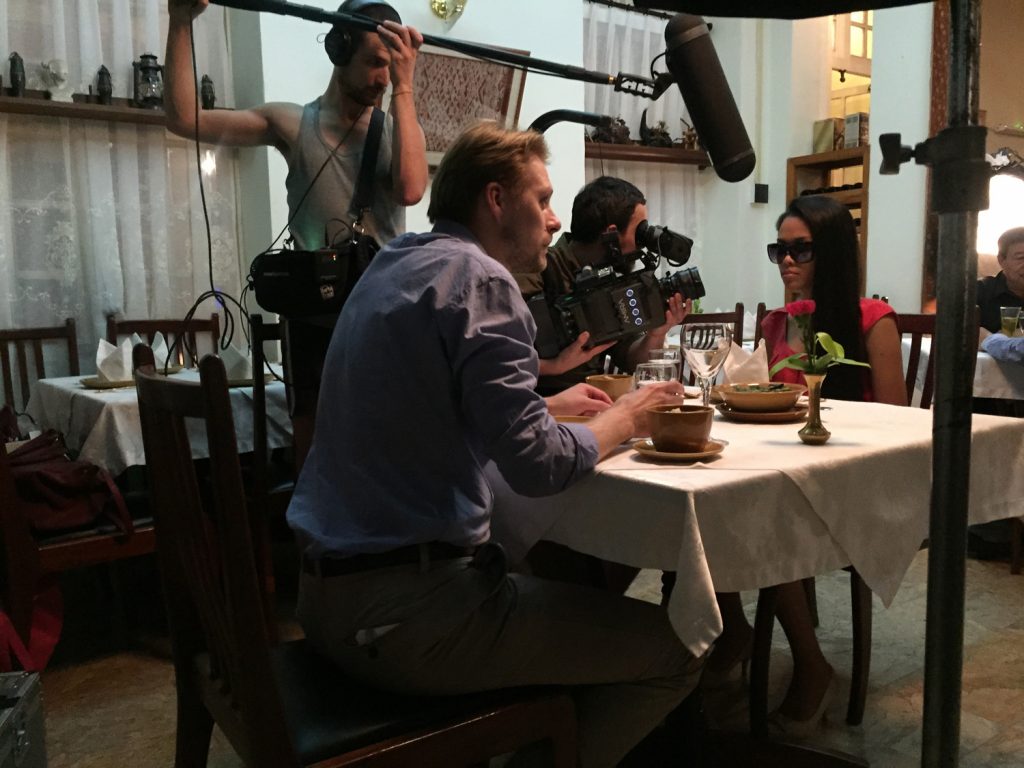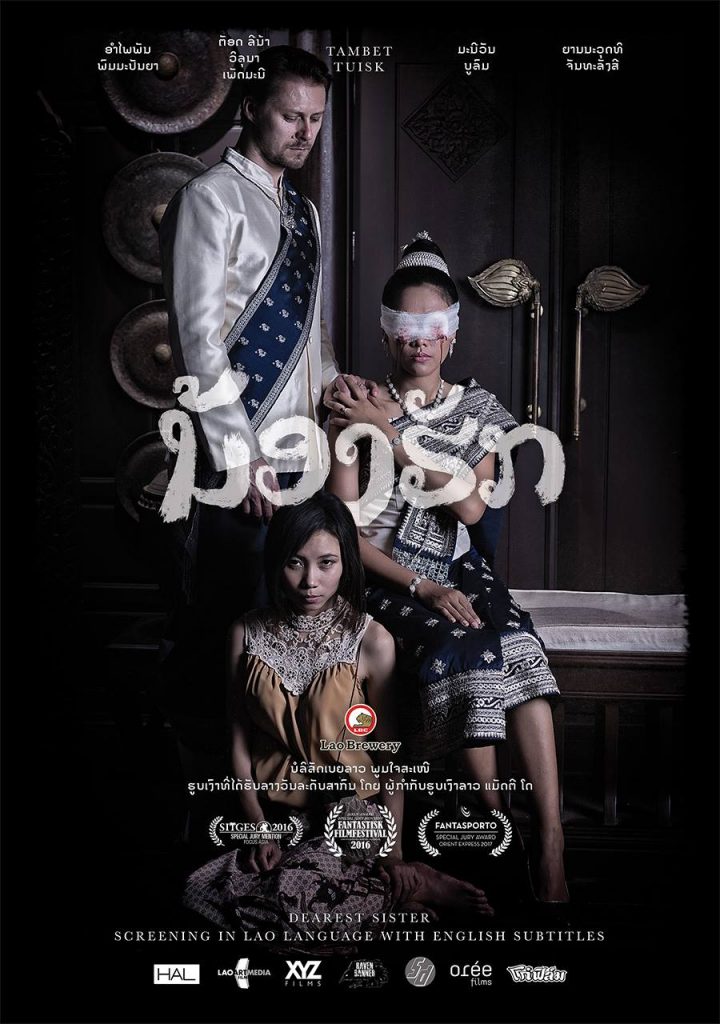Mattie Do doesn’t consider herself a superstitious person. But in Laos, sometimes strange things happen.
Many Lao people believe in the afterlife. They believe the dead can send messages, and that daily life is filled with secret codes and patterns that, once unlocked, can bring great luck to a family. And sometimes this involves money and lottery tickets.
Do, a Lao-Vietnamese-American filmmaker who was born in the US but moved to Laos in 2010, doesn’t subscribe to these beliefs, even while she looks on with fascination – half outsider growing up on the fringes of the Lao expat community in the US, half insider back in her home country.

But even she can’t quite explain away an episode in her youth when, living with her family in America, she awoke in the middle of the night to find her mother moving the furniture – something she does when stressed.
“She said, ‘I had a nightmare that my aunt came to me and she was pale and wet and cold and she was trying to speak to me but I couldn’t understand her’, and everyone said, ‘Just go to sleep, it’s just a nightmare’,” Do says.
“And then the phone rang as we were all going back to our bedrooms, and the call was to say the aunt had died from exposure, fishing, because a storm had hit. I’m not a terribly superstitious person, but that is an unforgettable moment for me.”
It’s one of many such things that make up the unique perspective of Do in her career as a filmmaker – the only female director in Laos, and the first to make a bona fide horror movie. She has long been intrigued by the daily superstitions, contradictions and strange social mores that make up daily life in Laos; she and her husband, screenwriter Chris Larsen, even keep a running list of such observations, in case they can later sneak them into a film script.
It’s already happened: that long-ago premonitory phone call would eventually inspire her second feature film, Dearest Sister, screened at international film festivals to great acclaim, and recently opened in Laos. It’s a ghost story about a young woman in Vientiane who’s slowly going blind, the visions she’s been having, and the young, country-mouse cousin who takes advantage of these glimpses into the underworld. It’s a creeping, slow, hauntingly beautiful and ultimately terrifying horror film that also happens to show a side of Laos that has surprised many viewers, especially those in other countries.
On a Tuesday evening in Vientiane, Do and Larsen are drinking cocktails in a downtown bar, and recovering from the film’s Lao premiere the night before. It was the first time the film had screened in Laos, and the first time people who weren’t friends of the couple had seen it.

Do admits she had been particularly nervous in the lead-up. Despite its universally positive reviews overseas, the film is not exactly a flattering portrait of her home country. Some of the most common ‘complaints’ about the film so far, beyond its lack of overt gore, is that it doesn’t show the Laos that people – foreigners – expect. The film is set in modern-day Vientiane – not a rice paddy or rustic village in sight – and the characters live in an urban, materialistic setting. The symbolism, if you know where to find it, shows through vanity plates on luxury cars, smartphones, swanky restaurants, wads of cash.
It emerges through the complex social structures that exist in a city filled with ambitious social climbers and rich expats, country relatives expected to fit in, and watchful servants who could snap at any time.
It is, in other words, the Laos that Do knows. And the one that everyone in the cinema recognised at the screening. There were, she says, big laughs at scenes that no one would ever consider funny overseas. In fact, the film’s central premise – that the dead send messages to the living with lottery numbers – has often been regarded dubiously by foreigners.

“[Foreign viewers] don’t understand that the lottery thing is cultural, and they think it’s a goofy plot device,” Do says. “But they walk that back a lot of times when they find out it is a real cultural thing.”
Indeed, she remembers being horrified when, not long after her own mother died, a relative asked her whether she had been “visited” in a dream, and whether her mother’s ghost had given away any numbers. This was before she knew herself how integral such a belief is to daily life in Laos.
“I tell people all the time when I’m travelling and they ask me about the film, that it’s important for me to capture what I see,” she says. “It’s biased, of course it’s biased, I’m a filmmaker, what I put on the screen is going to be from my perspective, and I want to put something as truthful as my perspective that I actually view and observe onscreen. And I see this. This is like everyday life in Laos, especially for someone who is Lao, like me, but who can also take a step back and realise how absurd it is.”
It’s striking that all of the characters in the film are more or less unlikeable, or at least, blinded by self-interest.
And while these character traits are somewhat exaggerated in the script – this is a classic horror film, after all – Do says she wants to address ingrained stereotypes, both in Laos and from an outsider perspective, about how Lao women should behave.

“In society there’s a lot of this – we have to live up to this cultural expectation that Lao girls are pure, demure, long black hair, wear a sinh, do the right thing,” she says. “But the thing is, none of it’s true.”
In reality, modern Lao culture, and the people – especially women – who move within it every day, are complicated. There are layers of tradition and superstition entwined with modern-day longings and the trappings of materialism.
But, despite its subject matter, the film is at its heart a love letter to Laos, and to Vientiane especially. It’s there in every throwaway line, close-up of a license plate and in-joke about haircuts and wine glasses: this is the Laos we know, and only those who live here will ever really understand it.
Luckily, this is exactly what many viewers walked away with on that Monday evening, bright with chatter and the thrill of a good horror film. And what did they mostly say to Do?
“The most obvious thing is that they’ve never seen a Lao film that was so beautiful,” she says.



 ລາວ
ລາວ
